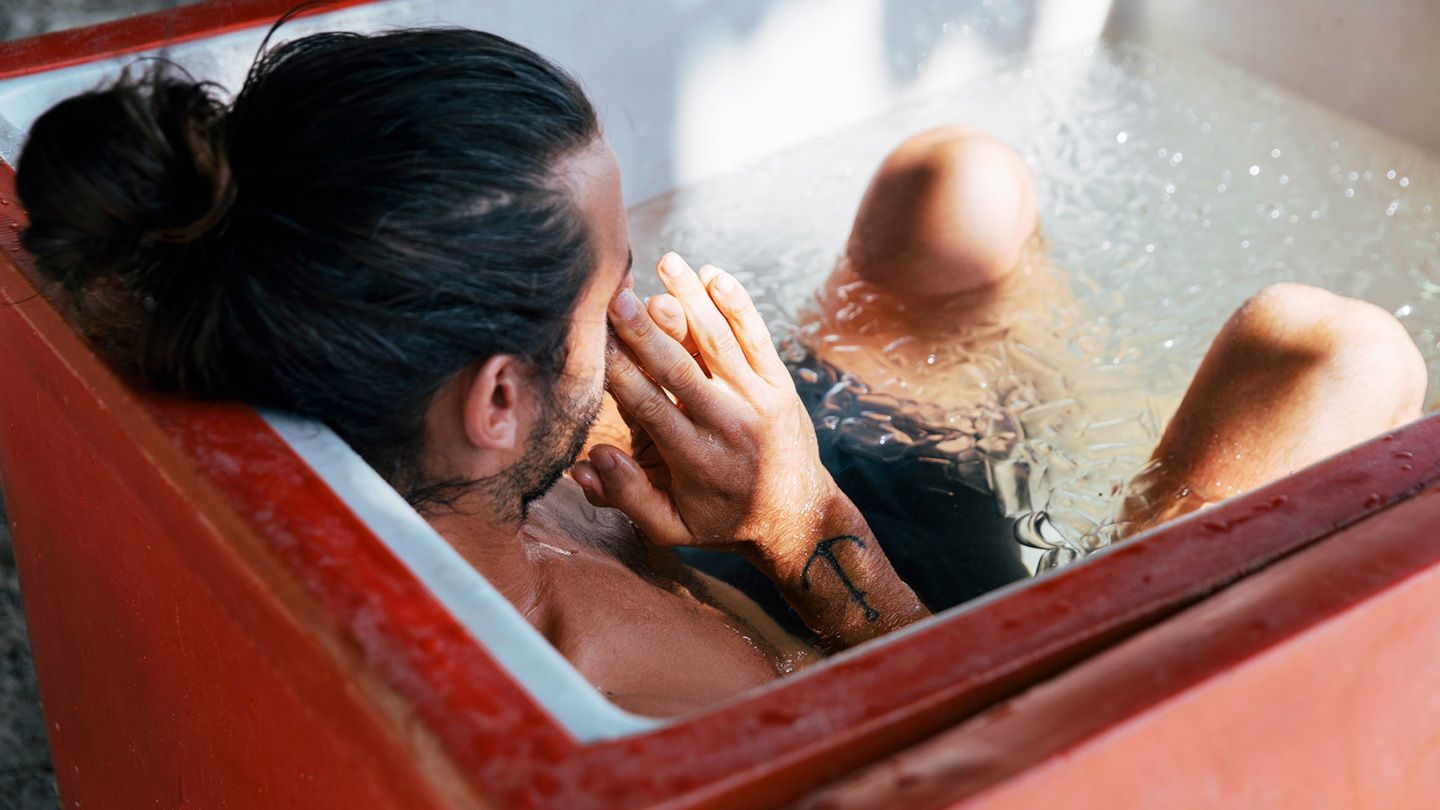3. May Improve Circulation
Many of cold water therapy’s perks can be traced back to its effects on circulation.
In that Journal of Athletic Training study, 10 healthy adults had a 30-minute contrast water session with one lower leg submerged and the other above water. Researchers found that contrast water therapy significantly improved circulation and increased oxygen levels in the submerged leg muscles, compared with the leg that wasn’t submerged.
The circulatory system (also known as the cardiovascular system) pumps blood to the lungs to transfer oxygen via the heart to the rest of the body. The better that your heart and blood vessels can perform these functions, the better they’ll be able to rid your body of waste. The end result? Healthier organs, muscles, and tissues, per the Cleveland Clinic.
4. May Boost Your Mood
The bracing effects of cold water may offer a quick mood boost.
A study of 33 healthy adults, ages 20 to 45, who took a 68 degree F bath for five minutes found that participants reported feeling more active and alert, and less distressed and nervous, after a cold water bath. The authors conclude that submerging the body, but not the head, in cold water for short periods of time may be associated with a positive effect on the brain, including increased levels of dopamine. Dopamine is known as the “feel good hormone” because of the key role it plays in regulating mood, per the Cleveland Clinic.
“Dopamine boosts our mental state at the moment, and it also helps with mental acuity and alertness throughout the day,” says Mathew Welch, CSCS, an exercise physiologist at the Hospital for Special Surgery in New York City.
While some research suggests that cold water therapy may benefit depression and anxiety, it can’t replace conventional care for mood disorders, Dr. Biehl says.
5. May Build Resilience
Regularly challenging yourself to withstand cold temperatures may help you build resilience, or the ability to handle other stressful situations when they arise.
“I think there’s a lot to be said about exposing your body to those types of stimuli in a controlled manner,” Welch says. Exposure to cold water triggers the release of hormones like adrenaline, epinephrine, and noradrenaline (also known as norepinephrine), he explains, all of which are associated with the fight-or-flight response.
In addition, a survey of routine winter ocean bathers found that this practice was associated with lower levels of self-reported stress and greater well-being, compared with those who did not enter cold ocean waters, according to research.
This hormone release is part of your body’s natural stress response. “We go through an alarm phase when we’re hit with a stressor like cold water,” Welch says. “Then we have a resistance phase, when our body adapts to the stressor.” Eventually, you’ll reach a point at which you’re more resilient to the cold water.
“This is more of a mental benefit than a physical benefit, but for people struggling with anxiety or those who feel like they lack the control to start teaching their body and mind to remain calm in extreme situations, cold water therapy can be an amazing thing,” Leary says.
Read the full article here




